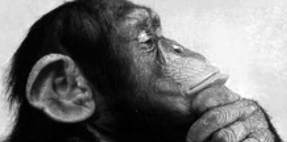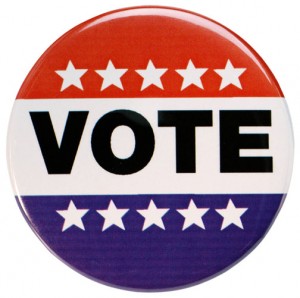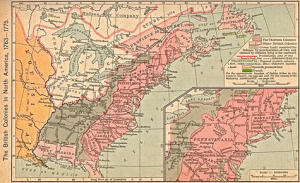Op-Ed: Tales from an evolved ape — We the people…

As we approach a certain age and time in our lives, we begin to shuffle priorities and find time for things that spark our intellect and that before we had limited time for. For me, it has been catching up on history, and recently a particular subject, the American Revolution.
The more I read about the events, the period and the cast of characters within this story, the more I am fascinated by their human spirit. I don’t believe in history revisionism and thus try to look at them from the perspective of their time and reality. The “founding fathers” were truly a visionary and amazing group of men. As we all have read and heard during our history classes, July 1776 was the pivotal year in the history of the U.S., for it was the date on which they severed ties with the British Empire and declared independence. The “founding fathers” had achieved the ultimate objective, self-rule.
The reasons for the declaration of independence by those colonies were many and stemmed from a series of social, political, and intellectual transformations that occurred within the American society of the mid to late 1700’s, the famous “American Enlightenment” period.
It’s always about taxes…
But, there was also that mundane reason driving the revolution as well, that of British subjects being taxed without the consent of their representatives in Parliament as stated by the British Constitution. The taxation problem was driven by the fact that they had no representatives in Parliament and thus the empire could do as it pleased.
This action by the British Empire constituted a violation of the constitutional doctrine of taxation only by consent, which applied to all British citizens, except those residing in the colonies. Thus, that famous and catchy phrase “no taxation without representation” found fertile ground. Oddly enough, the Irish had been using the same phrase on the British Empire for almost a decade earlier to the 1750’s, but somehow it was not as impactful and fell silent, as are most of the sounds made by minorities with unsuccessful struggles within large empires.
But above all, the main and most important reason for such a “cry of independence” was the fact that those 13 colonies were governed from overseas by Great Britain’s Parliament without any representation during a time in which the empire was largely in debt and radical measures were being taken. Sounds familiar?
Aside from fueling the revolutionary spirit, the right to representation of all citizens became a significant driving force behind the creation of the founding father’s second objective: the constitution and its following amendments. An 11-year process to complete that produced the originally agreed upon version.
This single “right to representation” issue drove the likes of Jefferson, Adams, Washington, Franklin and Madison to lift arms against their country in exchange for the creation of a republic were “all men are created equal” and thus governed “by the people and for the people.”
Time flies…
Fast-forward 235 years, the British Empire, once the most powerful empire on the face of the earth, is no more. The U.S. became the most powerful and influential country on the face of the earth and it would seem that the original vision of those 13 colonies had been realized.
But even though the players have changed, somehow this same scene is still playing itself out. There is still a group of citizens who are “governed from overseas without any representation:” the Puerto Rican people. This time, instead of 13 colonies there is only one. It seems the lessons from the “founding fathers” were lost.
It’s history repeating…
Puerto Ricans, all of them U.S. citizens since March 2, 1917, cannot vote in the presidential elections for as long as they reside in Puerto Rico, a U.S. territory. But they can do so if they relocate to one of the incorporated 50 states, if they are in the military or even if they live in another country where there is a U.S. embassy.
A questionable 1922 U.S. Supreme court decision in the case of Balzac v. Porto Rico, ruled that the full protection and rights of the U.S constitution do not apply to residents of Puerto Rico until they come to reside in the continental United States. In other words, a U.S. citizen can have their right to vote taken away based on where he or she resides. In other words, discrimination based on geography. Would Jefferson agree? I don’t think so.
If you move to Spain or even Communist China, you are still a citizen, you can vote for the president, and taxation does follow. But if you reside in Puerto Rico, you simply cannot choose the leader that might send your kid to war. Would John Adams have a fit about this issue? You bet!
Oddly enough, if you resign your U.S. nationality, as did Juan Mari Bras, for as long as you remain living and working in Puerto Rico and if you were to travel, the only national citizenship recognized by Washington and other nations around the globe for Puerto Ricans is the U.S. citizenship. So there are no other alternatives.
The concept of a Puerto Rican citizenship is akin to one obtained by somebody living in Texas. You could almost argue that being called a Puerto Rican is almost the same as being called a Texan, both are citizens of their respective states as well as citizens of the republic, their national identity.
The constitution has received through the decades every type of amendment imaginable to ensure the right of citizens to vote and participate in the selection of the central government. You can’t discriminate by age (as long as you turn 18), sex, religion, creed, or even crime committed or if you pay or not your taxes.
In 48 of the 50 states, imprisonment is not a cause for losing your right to vote for the ultimate government seat. Interestingly enough, the 14th amendment to the U.S. Constitution proclaims that States that deny the vote to citizens, except on the basis of “participation of rebellion, or other crime,” will suffer a reduction in representation. Just another validation that the spirit of the U.S. constitution is one of inclusion and ensuring that every U.S. citizen can exercise their “franchise,” in other words, that civil right to vote.
Bring in the courts…
Recently, the First Circuit Court of Appeals’ decision on voting rights for Puerto Rico’s four million residents ended in a deadlocked 3-to-3 on whether to hear a case in which a lower court already denied Puerto Ricans a right to vote. This issue has been previously taken to the federal courts, but it is the first time that one of the Supreme Court justices is of Puerto Rican ancestry. It means that one of the Justices may have a different perspective on the issue. Hopefully a more “franchising” view of the topic!
 The First Circuit’s previous ruling stated that Puerto Ricans would be allowed to vote in U.S. elections only if Congress passes a constitutional amendment or if the territory became a state.
The First Circuit’s previous ruling stated that Puerto Ricans would be allowed to vote in U.S. elections only if Congress passes a constitutional amendment or if the territory became a state.
The case, reviewed by the First Circuit, based its premise on international law to argue that Puerto Ricans were being deprived of their right to participate in a democracy. Interesting, this is reminiscent of some of those claims heard back in the 1760’s by some of those British subjects living in the new world.
The International Covenant on Civil Rights and Political Rights supported this premise, a document the United States ratified in 1992. The treaty says “citizens of a country have rights to democracy that include voting in elections.” Interesting, but what about those Puerto Ricans? Which country are they citizens of?
In the recent First Circuit’s ruling, one of the dissenting judges was Judge Kermit Lipez, who said he has changed his mind since the court’s ruling against Puerto Rican voting rights in 2005. Lipez says he now believes the Constitution “may permit their enfranchisement” under some interpretations of law. Could it be that the “interpretation of law” is based on the constitution’s original vision for all citizens?
It is not my intention to go into the quagmire of ideological politics surrounding status; that, in itself is another topic, but to address the fact of a single premise, that the citizens of any country have the right to fully participate in the democratic process of their nation.
Since the 1922 decision on the Balzac case, the Supreme Court and U.S. government have failed to recognize Puerto Ricans as full-fledged citizens even though they have carried their weight as well as any other incorporated territory. The “half citizenship” was always hidden behind the veil of the “status question” and the concept of unincorporated territory, a question that has been unanswered for 113 years, almost half of the 235 years of the U.S.’s existence.
Today, Puerto Rico is a U.S. territory with 4 million U.S. citizens, and these citizens should have a right to participate fully in the democratic nation to which they belong. This conditioning of a right to vote to the political question of status, finds its basis less in the spirit of the U.S. constitution, and more in the political and economic agenda of the U.S. government in relation to “the concept” of Puerto Rico. A “concept” that is yet to be permanently defined.
Here comes the President…

President Barack Obama during his recent visit to Puerto Rico. (Credit: Janelyn Vega, Radio Universidad de Puerto Rico)
Upon his recent visit to Puerto Rico, President Obama stated that, “The aspirations and the struggles on this island mirror those across America.” I would add that they mirror even more closely those of the original 13 colonies in 1775, when they were still British subjects.
The president has also pledged to support “a clear decision” by the people of Puerto Rico on statehood. His Task Force on Puerto Rico’s Status has already recommended a vote on Puerto Rican statehood by the end of 2012. This, some would argue, is a clear indication that the beginnings of a new policy toward Puerto Rico can be seen. But have we heard this rhetoric before? We have.
As Puerto Ricans, we are part of a country that through its history has set an example as to how its citizens can fully participate in the building of a prosperous society. For 113 years we have been excluded from full participation.
The foundation of what our constitution stands for, a document even admired and copied by friends and foes alike, has to be interpreted based on the vision of its “founding fathers” and those few words written in the Declaration of Independence:
“We hold these truths to be self-evident, that all men are created equal…”
Puerto Ricans, as any other U.S. citizens, should have the right to vote and be treated equal for as long as that citizenship is granted. Regardless of the fact that they reside in Puerto Rico, and the possibility of future changes in the U.S.-PR status. This is not an “interpretation of law” issue but an interpretation of human and constitutional rights.
John Adams’ “Thought on Government” should be a must for all those in charge of interpretation of the constitution. Adam’s premise is simple, “the form of government should be chosen to attain the desired ends, which are the happiness and virtue of the greatest number of people.”
Yes, the greatest number of people, Adam’s vision was inclusive, not exclusive. That would mean that Puerto Ricans, as well as all other U.S. citizens living in the U.S.Virgin Islands, Guam and Northern Mariana Islands should be included in the representation process. What a great notion!
I am sure all the “founding fathers” and the more than 2.5 million “soon to be Americans” that lived in those original 13 colonies 235 years ago would strongly agree…
“We the people…”








